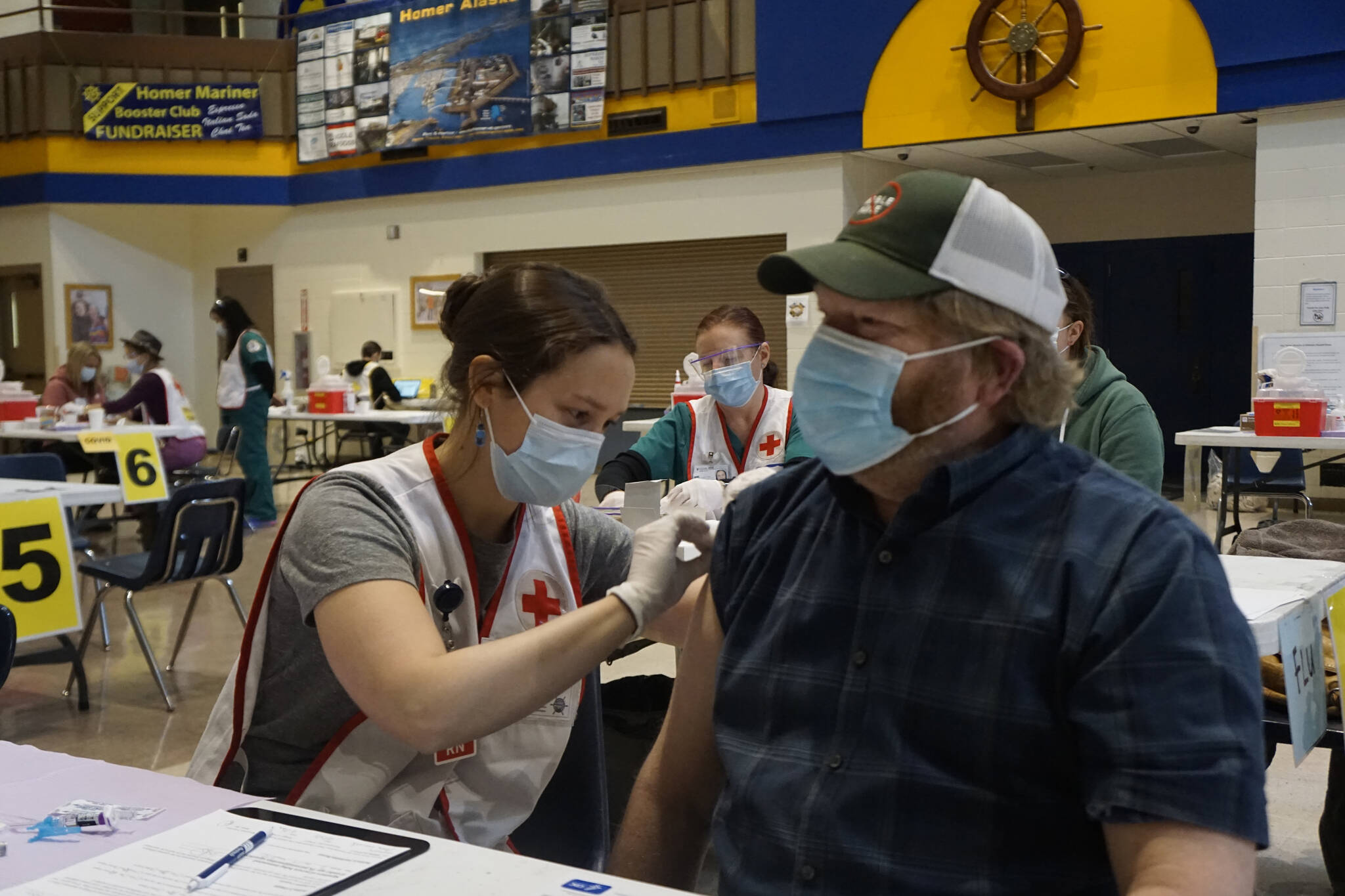As news about COVID-19 surges and concern about reduced hospital capacity fills the headlines, state and local public health officials are urging Alaskans to get a flu shot before fall turns to winter.
In a news release last week, the Alaska Department of Health and Social Services and the Alaska Native Tribal Health Consortium urged Alaskans to get vaccinated against the flu before the end of October.
“Getting an annual flu shot will help protect you and others from the flu – and help prevent additional strain on Alaska’s health care system,” the release said.
Scott Watts, pharmacist and owner of Ron’s Apothecary Shoppe, said he encourages flu vaccines.
“It’s a good preventive,” he said in a phone interview Wednesday morning. “It helps the community by decreasing the amount of flu around us.”
Watts said flu vaccines present a “safe and simple” step to help prevent illness.
Flu worries
The flu is responsible for hundreds of thousands of hospitalizations and tens of thousands of deaths annually in the United States, according to the federal Centers for Disease Control and Prevention.
In Alaska, flu causes a significant impact that varies annually, according to DHSS.
Flu cases dropped to historically low levels globally over the pandemic, as restrictions designed to slow the spread of the coronavirus helped block other respiratory viruses. But with schools and businesses reopened, international travel resuming and far less masking, there’s no way to predict how bad a flu season the U.S. might expect this winter.
Juneau-based public health nurse April Rezendes said she has some concerns about the upcoming flu season because last year’s season never took off as school took place online, offices were often closed and people stayed home to avoid contracting COVID-19.
Flu banner
“We anticipate more of a normal flu season this year,” she said. “That puts more strain on hospitals and testing capabilities as the symptoms of flu and COVID are similar.”
Rezendes said flu season in Alaska normally ramps up in December and January. So, getting a shot in October gives your body plenty of time to build antibodies.
“We are not seeing a lot of flu cases yet but now is best time to get your shot – before flu begins circulating widely,” said Alaska’s Chief Medical Officer Dr. Anne Zink.
Reducing healthcare burden
According to DHSS, flu vaccination is part of a comprehensive public health strategy to keep Alaskans healthy, reduce the burden of flu and preserve resources for COVID-19 patients and others who may need health care.
“A lot of Alaskans are asking how they can help our health care workers. Please get a flu shot as soon as possible! It’s simple and effective and will help keep all of us healthy this winter – and help protect our health system too,” Zink said in the release.
[Juneau Symphony kicks off 59th season]
Safe and effective
Experts say that flu vaccines are safe and effective.
Rezendes said although the flu vaccine can’t prevent all flu infections, vaccinated people who get infected tend to have milder cases.
She said that people generally assume that flu infections are most dangerous for the very old and very young but that she has seen people in all age groups contract flu.
“When people in the middle age groups get sick, they spread it around to others,” she said. “A flu shot helps protect your family and community.”
Watts said that sometimes people tell him that they are healthy and don’t fear the flu. But he still encourages them to get the shot.
“Conditions can change,” he said. “We don’t always know when we will need that protection.”
Don’t delay
Watts and Rezendes both point out that flu shots can be co-administered with other vaccines, including COVID-19 boosters and initial vaccine doses.
“If you’ve been putting it off, it’s safe to get them together,” Rezendes said.
DHSS and ANTHC recommend annual flu vaccination for everyone six months and older. Essential workers who encounter others outside their homes along with residents and caregivers in nursing homes and other long-term care facilities are at higher risk for flu.
Those at higher risk of getting severe flu disease include:
■ Pregnant women and children under 5 years of age.
■ People 50 years and older.
■ Adults and children who have chronic medical conditions like lung disease, asthma, heart disease, diabetes, neurologic disorders, and weakened immune systems, or those who are extremely obese.
■ Alaska Native people and other racial groups who are disproportionately affected by chronic medical conditions that can increase the risk for severe flu or COVID-19.
Visit flu.alaska.gov for more information.
Contact reporter Dana Zigmund at dana.zigmund@juneauempire.com or 907-308-4891.



